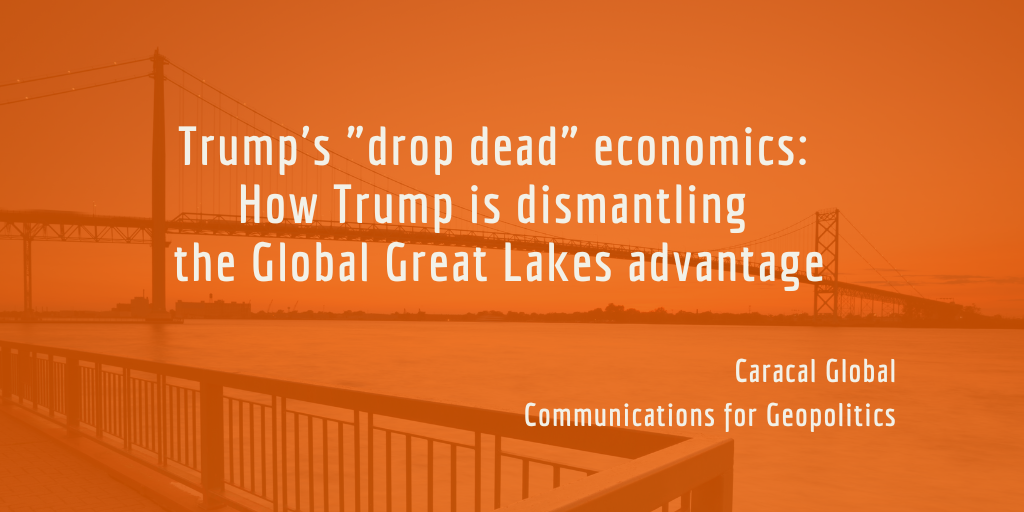How does the CIA conduct spy recruitment today? It posts a video on YouTube, of course.
Not quietly. Not in a classified brief shared with Congressional oversight committees. But loudly, on social media, in Mandarin, aimed at disillusioned Chinese military officers. The message was direct: contact us securely. Tell us the truth about China's leadership. Help us understand what Beijing is hiding.
This wasn't public relations theater. This was a strategic signal wrapped in a recruitment strategy, and it tells corporate America something essential about the world you're operating in right now.
The timing matters. The CIA released "Save the Future" just weeks after China purged General Zhang Youxia, the number two uniformed officer on Chairman Xi's Central Military Commission, along with General Liu Zhenli. Zhang's removal represents the most serious purge of top Chinese military leadership since Mao. But he wasn't the first. Dozens of similar moves against senior People's Liberation Army (PLA) generals have occurred in recent years, all orchestrated by Xi and signaling instability at the highest levels of Chinese military command.
For US intelligence agencies, this creates an opportunity. Extensive purges mean extensive frustration. Qualified officers are being replaced by political loyalists. Career professionals watch unqualified party members leapfrog the merit system. The documentary framing in that CIA video captures this reality: the disillusioned officer watching capable generals removed and replaced by apparatchiks, witnessing how corruption corrodes both institutions and families.
The CIA's message to these officers was telling: your duty is to China and its citizens, not to the Communist Party. Contact us. Help us understand the truth. The subtext was unmistakable: Beijing's instability creates vulnerability.
Here's what this means for global business operating in China:
The United States and China are no longer competitors in any conventional sense. They are strategic adversaries engaged in a permanent competition for intelligence, influence, and advantage. That CIA video wasn't an exception to the rules of geopolitical engagement. It was confirmation that those rules have fundamentally changed. The recruiting video was the tip of a much larger intelligence war now playing out across technology, military capabilities, supply chains, and economic influence.
Your business operates within this context, whether you're a manufacturer reliant on Asian supply chains, a technology firm concerned about China's espionage capabilities, or a global enterprise managing government relationships across multiple jurisdictions. The world your board discussed five years ago was one of managed competition and gradual decoupling. The world you're operating in now is one of rapid, unpredictable disruption.
This manifests in three concrete ways:
First, tariff volatility is now a permanent feature of American trade policy. Team Trump's approach to China, allies, and trading partners suggests that traditional frameworks are finished. Supply chain plans built on assumptions of stable tariff environments are obsolete. You need redundancy, geographic diversification, and strategic planning that assumes tariffs will shift.
Second, supply chain resilience requires government relationships as an essential strategy. Your sourcing strategy must now account for not just cost efficiency but also geopolitical risk, export control regimes, and the need to maintain relationships with multiple governments simultaneously. That's not a communications problem. It's an operational necessity.
Third, interest rate environments will remain elevated and volatile as long as the geopolitical uncertainty persists. Your financial planning cannot assume the near-zero rate environment of the previous decade. Budget for higher costs of capital. Plan for continued pressure on margins.
The common thread?
You cannot navigate this environment reactively.
You need a strategic framework for understanding persistent geopolitical volatility, not temporary disruption.
That requires three things: intelligence on what's actually happening in global geopolitics, not what traditional media reports; a strategy for engaging government stakeholders, competitors, and allies simultaneously; and a communications architecture that helps your board, your teams, and your stakeholders understand the landscape you're operating in.
Caracal Global helps multinational corporations navigate this terrain. Our team, led by a Michigan-born, DC-based strategist with expertise spanning US-China relations, NATO, and national political campaigns, specializes in intelligence, strategy, and communications at the intersection of globalization and American politics. We help you translate geopolitical reality into operational capability.
The CIA's video is a brilliant recruitment strategy. But for you, it's a reminder: the geopolitical ground is shifting beneath your business.
Enjoy the ride + plan accordingly.
-Marc
*****
Marc A. Ross is a geopolitical strategist and communications advisor. He is the founder of Caracal Global and is writing a book entitled Globalization and American Politics: How International Economics Redefined American Foreign Policy and Domestic Politics.

